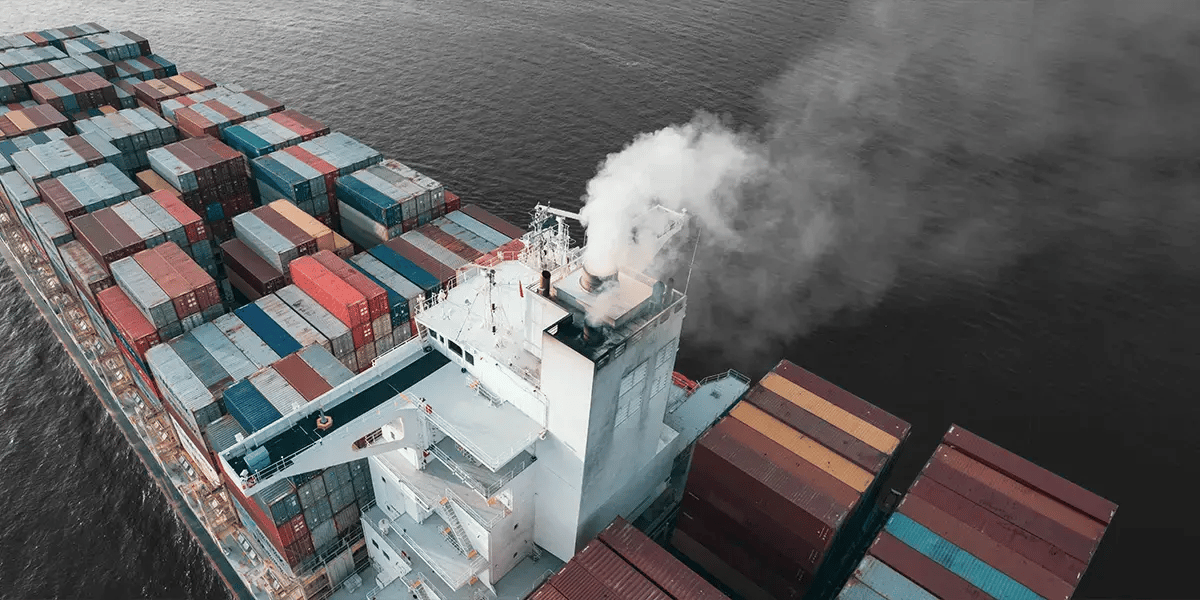
In recent years, there has been a growing concern about logistics sustainability and the delivery journey's last mile. As a result, retailers, manufacturers and warehouses have been under increasing pressure to decarbonize their emissions footprint. This has led to a greater focus on carbon emissions tracking software in delivery management and supply chain operations.
Here are some effective strategies that businesses can implement to minimize their environmental footprint in the delivery process:
Importance of emissions tracking in delivery management
Emissions tracking software is crucial in delivery management as it helps businesses monitor and manage their carbon footprint. With the rise of e-commerce and the growth of the delivery industry, emissions from delivery vehicles have become a significant contributor to air pollution. By tracking emissions data in real-time, businesses can identify areas where emissions can be reduced, leading to a more sustainable and environmentally friendly delivery system.
According to a report by the World Economic Forum and Boston Consulting Group, supply chains account for more than 50% of global CO2 emissions, and decarbonizing them would add just 1-4% to end-consumer costs for many everyday items.
Advanced telematics and IoT integration
Telematics and IoT technologies have revolutionized the way businesses track emissions. By integrating telematics and IoT devices into delivery vehicles, businesses can collect real-time data on fuel consumption, engine performance, and other factors that affect emissions. This data can be analyzed to identify areas where emissions can be reduced, leading to more efficient and environmentally friendly delivery practices.
The benefits of real-time data collection and analysis are significant. Businesses can identify areas where emissions can be reduced, optimize delivery routes to reduce fuel consumption and monitor driver behaviour to ensure that they are driving in an environmentally friendly manner.
Predictive analytics and machine learning
Predictive analytics and machine learning are increasingly important in emissions tracking. By analyzing historical data, businesses can identify patterns and trends that can be used to predict future emissions levels. This enables businesses to take proactive measures to reduce emissions, such as optimizing delivery routes or using more fuel-efficient vehicles.
Machine learning algorithms can also be used to optimize delivery practices. Machine learning algorithms can identify the most efficient delivery routes and the best times to make deliveries by analyzing data on delivery routes, traffic patterns, and other factors. This can lead to significant emissions reductions in fuel consumption.
Regulatory, compliance and emissions reporting
The regulatory landscape is constantly evolving, and businesses must stay informed about future developments related to emissions tracking. Governments worldwide are introducing regulations to reduce vehicle emissions, and businesses must be aware of these regulations to ensure compliance.
For example, in the European Union, the CO2 emissions of new heavy-duty vehicles are regulated by the European Commission, and delivery companies must comply with these regulations to operate in the EU market.
The nShift Emissions Tracker calculates emissions on each shipment. This makes it easier for businesses to fulfill CRSD reporting obligations, pinpoint opportunities for emissions reduction, and track their improvements.
A leader in addressing last-mile delivery challenges
Among various software providers, nShift has emerged as a leader in addressing last-mile delivery challenges. Offering real-time emissions tracking and a streamlined customer experience, nShift’s suite enhances the customer experience. With advanced data analytics capabilities, businesses can gain actionable insights to refine their strategies. nShift Emissions Tracker enables organizations to fulfill reporting responsibilities under EU CSRD requirements, which come into force in late 2023.
Importantly, nShift offers scalability. Whether catering to a small business or a large corporation, nShift's system is designed to adapt to your growth, ensuring efficient delivery processes at every scale.
For more information, contact us to learn about emissions reporting with nShift.
About the author




